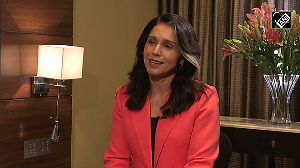With the fate of the Development Enterprise and Services Hub (DESH) Bill in limbo, the commerce department is working towards tweaking some rules under the existing special economic zone (SEZ) law to allow use of unutilised spaces in IT/ITES for non-SEZ purposes.

The move, when implemented, will free-up the land area that is not in demand through partial de-notification of certain floors or buildings, thereby allowing easier exit.
“The department of commerce is discussing the matter with the revenue department before making changes in the Special Economic Zone Act, 2005,” a person aware of the matter told Business Standard.
The provision was a part of the draft DESH Bill that proposed denotification of vacant land area even if it is in a contiguous area.
This means free spaces in the same building in a “development hub” can be denotified to use them for other purposes.
The implementation of a revamped SEZ law via DESH Bill has been delayed due to continued disagreements between the commerce and revenue departments.
While the commerce department had finalised the first draft of the Bill in June, it received serious objections from the revenue department over the proposed fiscal incentives.
The initial plan was to table the Bill in the monsoon session, after which the internal target of the commerce department was to get it passed in the winter session.
The differences between both departments, however, remained.
This uncertainty regarding implementation of the new law has also made existing and potential investors in SEZs jittery.
The new draft DESH Bill seeks to set up “development hubs” for promoting economic activity, generating employment, integrating with global supply and value chains and maintaining manufacturing and export competitiveness, developing infrastructure facilities, promoting investments, including in research and development (R&D).
Such hubs will also include existing SEZs.
Another proposal that the government might consider is allowing domestic companies to make payment in rupee for supply of services to domestic tariff areas.
The move, if implemented, will boost growth of IT units in SEZs.
This has also been a long-pending demand of the industry.
According to government data, goods exports from SEZs during FY23 were at $61.6 billion, with a growth of 15 per cent.
Services exports from SEZs grew 27 per cent on year at $101 billion.
Overall total SEZ exports grew 22.4 per cent on-year at $163 billion.












 © 2025
© 2025